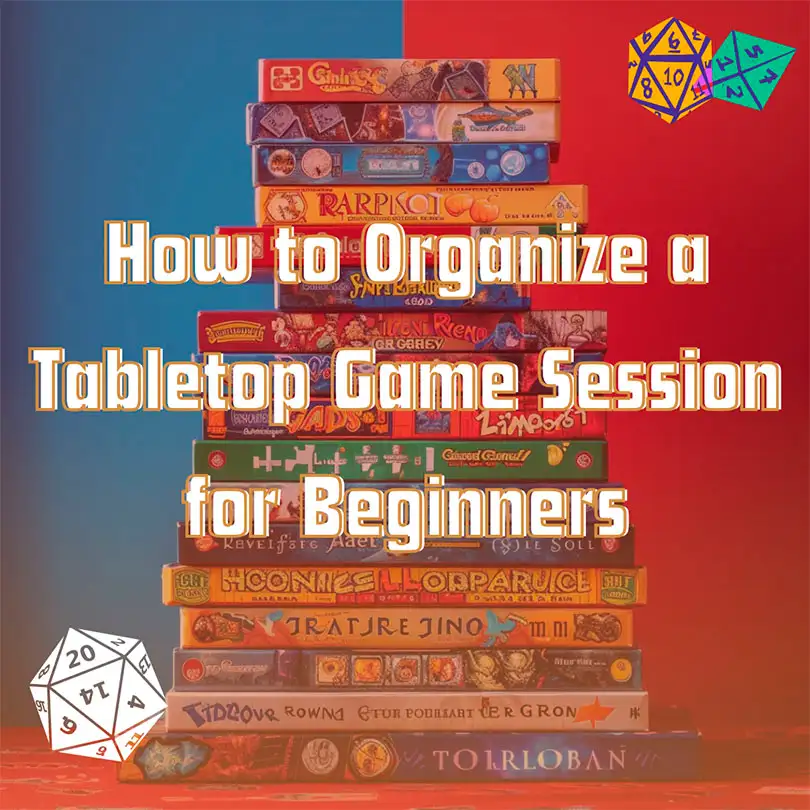Hosting a game sessions with family or friends and having in mind how to organize a tabletop session for beginners can be an incredibly fun experience, but it requires thoughtful planning to ensure everyone has a great time. From choosing the right game to creating a relaxed, welcoming atmosphere, a little preparation can go a long way. Based on our experiences hosting game nights, here’s a way to organizing a tabletop or board game session that even first-timers will enjoy.
Pick a Beginner-Friendly Game
Choosing the right game is crucial, especially for newcomers. You want something that’s easy to understand but still engaging enough to hold everyone’s interest. In my experience, games like Catan, Ticket to Ride, and Carcassonne are perfect for beginners. These games are well-balanced – easy to pick up, yet deep enough to remain interesting even after multiple playthroughs.
I remember when I introduced Ticket to Ride at my first beginner game night. Its simple mechanics, like collecting and playing colored cards to claim train routes, made it easy for everyone to understand, and the visual appeal of the game kept things exciting. We were able to jump right in with minimal confusion, which set a great tone for the evening.
Know the Rules Beforehand
As the host, it’s important to thoroughly understand the game before your guests arrive. Spend time reading the rulebook and watching online tutorials so that you’re prepared to explain the rules in clear, simple terms. Consider running through a solo game if possible to familiarize yourself with every aspect of gameplay.
When I hosted my first game night featuring Catan, I took the time to read the rules and even played a quick mock game by myself. It paid off—I was able to break down the key elements, like resource trading and building settlements, into bite-sized instructions that everyone grasped quickly. Having a solid understanding of the rules helped keep the flow of the game moving smoothly.
Set the Scene in Advance
Preparation is key. Before your guests arrive, set up the game board, shuffle any necessary cards, and arrange the pieces so that everything is ready to go. A well-organized setup helps maintain a relaxed and professional vibe, ensuring that no one feels rushed or confused by an unprepared host.
In one of my sessions, I made sure to set up the Carcassonne tiles and meeples beforehand, so when my friends arrived, we could immediately dive into the game. This made a huge difference, especially for the newcomers, as they could visually see how everything worked, and we didn’t waste time on setup.
Keep the Group Size Small
For a beginner-friendly game night, it’s best to limit the number of players to around 3-5 people. This allows for a more intimate experience where you can give individual attention to those who might need extra help understanding the rules. A smaller group also helps keep the pace of the game steady, preventing it from dragging or becoming chaotic.
I once invited a larger group of seven to play Catan, and it became overwhelming fast. There were too many questions at once, and it slowed the game down for everyone. After that, I learned to keep my game nights small and manageable, which made for a much more enjoyable experience.
Be Patient and Encourage Questions
As a host, you’ll be playing the role of both teacher and guide, especially for new players. Be patient and willing to explain things multiple times if needed. Encourage your guests to ask questions and don’t rush through the instructions. Sometimes, players may feel hesitant to ask for clarification, so create a supportive environment where everyone feels comfortable.
During one of my beginner sessions, we were playing Ticket to Ride, and one of my friends kept asking about the different strategies for claiming routes. Rather than get frustrated, I encouraged them to ask more questions, which ultimately helped everyone at the table better understand the game. This patient approach made the evening more relaxed and enjoyable.
Focus on Fun Over Winning
The main goal of a beginner tabletop session should be to enjoy the experience together, not to be overly competitive. Remind everyone that the night is about learning and having fun, not just about winning. A lighthearted, friendly atmosphere ensures that everyone leaves feeling good about the experience, no matter the outcome of the game.
At one of my first game nights, one of the players became overly competitive during a game of Catan, which put some people off. I quickly shifted the focus by reminding the group that it was all about enjoying the process of building settlements and trading resources, not just winning. After that, the vibe improved, and everyone relaxed into the game.
Organizing a tabletop game session for beginners can be a gratifying experience when approached with care and preparation. Selecting a beginner-friendly game, mastering the rules, setting up in advance, and keeping the group size manageable’ll create a smooth, enjoyable experience for everyone. Patience and a focus on fun over competition will help foster a relaxed, supportive environment where new players feel welcome and engaged. With these steps, you can ensure your game night succeeds and leave your guests excited to play again.
When you play at Arcanopolis with one of our Gamemasters, then they will help you to understand and teach you how to play certain games from our Game Bibliothek for your maximum fun. We know that starting a unknown game, fighting to the rulebooks and being confused with certain game questions can be challenging. Thats why on our main gaming days, like weekend, there are most times friendly Gamemasters around.

